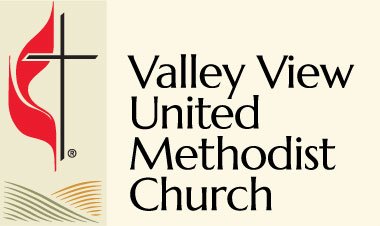What’s Happening in the UMC?
More than once I have been asked for my perspective on what is happening in the broader UMC. Why are we dividing? Does our church have to take a vote? What does it all mean?
From the time John turned to Charles and said "hey, let's form a club" there have been at least two opinions (that is, theological perspectives) in Methodism. The UMC has long maintained that it is a big tent church. There is a lot of space for different understandings, both of theology and scripture. The same scripture I understood in a certain way at 14 reads very differently now in my 30s. The things that separate us from other denominations are not trivial, but are focused on some of the more nuanced understandings of how salvation works, the purpose of baptism, and open communion. This does not mean there isn't overlap or that there is not a solid reason for other perspectives, it just means that the UMC holds these things as part of our practices as well as our theology.
Take for instance baptism. In the UMC, we baptize babies because we recognize that God's grace is at work in our lives long before we realize it. Baptism serves to initiate people into the church family and the opportunity to take the next steps in faith, including a public declaration of faith, comes either at confirmation or in joining the church as an adult. Other traditions use baptism as an opportunity to publicly declare the salvation of God, their faith, or other means of grace. While my beliefs are aligned with the UMC understanding of the purpose of baptism, it does not mean I cannot understand and give value to other theological viewpoints. And it will come as no surprise that both understandings are founded in scripture!
If we turn inward for some of the variances in the UMC, you will find they are many. Some churches are a little more high church or low church in how they plan and prepare for worship. The experience of communion may vary as well, not only as a remembrance of Christ's mighty acts, but occasionally as a time of conviction for sins not yet forgiven, peace given in times of trouble, or a filling with the Spirit so that one may go forth and be fruitful. And that's just to name a few! No matter how we come to the communion table, God meets us there. Just as we are unique and precious creations of God, so are our experiences in the sacrament of communion. Looking at my own experiences, my varied experiences of communion seem to confirm this understanding and I have reason to believe it would be the same for many of you.
But what about something that isn't just about our personal experience? Well, that's where atonement theories most often arise as the discussion point. The UMC allows for multiple atonement theories which attempt to explain why Christ had to suffer and die. There are some that are more popular than others, but there are at least seven that can be taught in the UMC without moving outside doctrinal standards and teachings. Each one is based in scripture, each one asks us to think about Christ in a different way, and each has its own merits and shortcomings. The longer we ponder these things, the more nuanced the understandings become, but there is space for each of us and our understandings to exist without traveling to such an extreme as to venture into heresy.
So, right now in the UMC people have some different thoughts about how to treat LGBTQ+ persons in the church, whether their identities should be treated as other, if as people they should be ordained, if they can be called by God, and if marriage is possible. All sides of this issue are claiming moral authority, scripture as the basis of their theological understanding, and that there is no way the various sides and understandings can coexist in one church. Personally, God either loves all of us or none of us. And since I believe it is all of us, there is a hope in finding ways to work with those with whom we disagree in building the kingdom of God, bringing peace, goodness, mercy, and justice to all the earth, and loving God and neighbor without hesitation or reservation.
If you have any questions, concerns, or thoughts, please send me an email or give me a call. If I do not have answers, others will.
